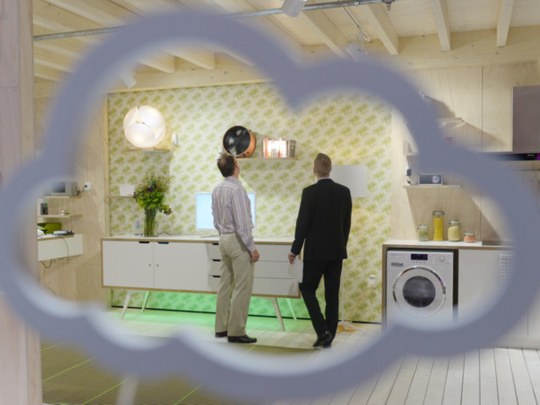
Germany’s highly developed and broad-based economy means almost all forms of industry are represented and opportunities for investment are diverse and tangible.
The biggest market in Europe is also its geographic and economic centre, and Germany has long served as a strategic hub. The country attracts investors to its traditional sectors, while also offering new avenues for investments.
Asset management firm TIAA-CREF led with favourable and incomparable German opportunities in its report on investing in the Eurozone. However, as the title of its August report, Investing in Germany and the Eurozone: Opportunities – But Also Uncertainty suggests, investment success in Germany is strictly subject to the Eurozone being preserved according to authors William Riegel, Head of Equity Investments and David Brown, Head of TIAA General Account.
“We believe the health of the German economy creates a number of attractive investment opportunities, though the outlook will be affected by economic and political developments across Europe. We see a very high probability that the Eurozone will remain mostly stable, in which case we expect German exporters to prosper — especially automotive companies and capital goods manufacturers. A stable Eurozone will also lead to a favourable environment for housing and consumption in Germany. In fixed income, we see opportunities to invest in a few large, German-based global companies with well-diversified revenue streams, and similar credit quality to US investment-grade corporate bonds,” says the report.
The authors add that institutional-quality commercial real estate and certain infrastructure-related categories will also offer investors relative value.
The CBRE Global Investors Q3 2013 report focuses on Germany’s burgeoning property market. According to Global Vision: The Investment Outlook for Major Property Markets, “Demand for German real estate is expected to hold up well in 2013. Prime yields are forecast to remain at low levels in 2013-2014, as investor demand is not expected to weaken, and economic growth strengthens.” The report favours core real estate and expects it to offer favourable yields when compared to competitive asset classes. CBRE also does not expect the attractive risk-spread between property yields and bonds (both government and corporate) to change soon.
Meanwhile, realty firm Savills observes that investment in German commercial property in the first three quarters of the year surged by 31 per cent to €19.1 billion (about Dh96.13 billion), against the same period a year ago, while residential volumes rose 14 per cent to €8.8 billion. “Investors in Germany are increasingly prepared to buy secondary, management-intensive properties and raise their value through effective asset management,” says Andreas Wende, COO and Head of Investment at Savills Germany, in his October report. “With a lack of available prime stock and further prime yield contraction, this is a reasonable investor strategy.”
Savills research shows that to date this year, Middle Eastern investors represented the largest group of foreign net buyers of property in Germany. “With stable fundamentals in the challenging economic environment of the Eurozone, the German real estate market is attracting new international buyers,” says Wende. “Investors from the Middle East and Asia are taking a closer look at investment opportunities.”
The Association of Electrotechnology and Electro-industry recently confirmed that investments in the German electronics industry touched €57.2 billion in 2011 in an all-time high and nearly tripled the 2002 level. “The amount of foreign direct investment (FDI) into the German electronics industry rose by €32.5 billion, at the end of 2011. Currently, 737 companies have at least one capital direct investor from beyond German borders,” Max Milbredt, Manager of Electronics and Micro-technology at German Trade and Invest, said in August.
Meanwhile, the Trade Association of Interactive Entertainment Software has announced a predicted 3.5 per cent turnover growth for this year. Gaming is one of Germany’s best performing industries and is creating numerous investment opportunities. Berlin, in particular, is experiencing a great boom in gaming start-ups, with keen international investment interest.
Manufacturing mettle
Mechanical engineering is paramount in making Germany the world’s largest industrial employer, the leading German exporting industry, and often the most important component of developing innovations. The forecast for this year shows a 2 per cent growth in production, and an increase of 3.9 per cent in turnover, showcasing record level figures.
The strength of Germany’s economy lies in its manufacturing sector, which provides enough investment opportunities, says Klaus Abberger, a senior economist at Munich-based Ifo Institute for Economic Research. “Investors benefit from high-quality manufacturing and international networks,” he adds.
Burgeoning bonds
When Germany sold €4.24 billion of notes maturing in September 2015 at an average yield of 0.19 per cent, it attracted bids equivalent to 2.25 times the allotted amount. The auction of German two-year notes attracted huge demand as investors sought Europe’s safest assets, making it the highest bid-to-cover ratio since July 2011.
In October, the Wall Street Journal reported on the relative reversal between US and German bonds, commenting that while the US market has been buffeted by concerns the Federal Reserve will start trimming back its bond purchases and, more recently, that the US government would default on its obligations, bathing Germany in optimism. “For now, the tightening of spreads between bunds and T-bonds is likely to continue.” said writer Alen Mattich.
Emirati investments
In December 2008, Colexon Energy AG entered a long-term strategic partnership with Masdar PV GmbH, for solar modules that are fabricated with a highly advanced, thin-film silicon-based technology —thereby offering investors a higher degree of efficiency and a more attractive cost-performance ratio. In March 2009, The Linde Group was awarded a long-term turnkey contract for providing gases at this photovoltaic manufacturing site in Erfurt. Masdar PV, a fully owned subsidiary of Abu Dhabi’s Mubadala Development Company, is said to have invested approximately $200 million in the Erfurt plant.
In June 2007, Dubai International Capital Private Equity — the private equity arm of Dubai Holding — acquired Mauser AG, a globally leading German based industrial packaging specialist. In November the same year, Dubai International Capital also acquired Frankfurt-based Almatis, a leader in the development, manufacture and supply of speciality alumina products.
In July 2009, holding company Abu Dhabi MAR acquired more than 90 per cent of the Nobiskrug shipyard, in Rendsburg.
In August 2013, Dubai-headquartered Depa Limited acquired the assets of German-based Loher Raumexklusiv, GmbH’s luxury interiors business. In August, Carlyle Group, the US private equity firm in which Mubadala owns a 7.5 per cent stake, bought German nursing home operator Alloheim from Star Capital Partners.






